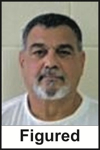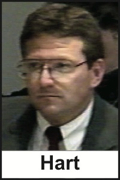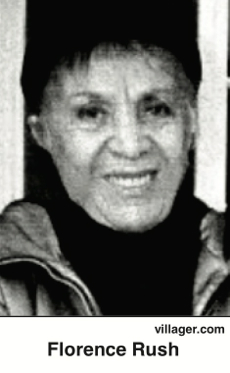Rascals case in brief
In the beginning, in 1989, more than 90 children at the Little Rascals Day Care Center in Edenton, North Carolina, accused a total of 20 adults with 429 instances of sexual abuse over a three-year period. It may have all begun with one parent’s complaint about punishment given her child.
Among the alleged perpetrators: the sheriff and mayor. But prosecutors would charge only Robin Byrum, Darlene Harris, Elizabeth “Betsy” Kelly, Robert “Bob” Kelly, Willard Scott Privott, Shelley Stone and Dawn Wilson – the Edenton 7.
Along with sodomy and beatings, allegations included a baby killed with a handgun, a child being hung upside down from a tree and being set on fire and countless other fantastic incidents involving spaceships, hot air balloons, pirate ships and trained sharks.
By the time prosecutors dropped the last charges in 1997, Little Rascals had become North Carolina’s longest and most costly criminal trial. Prosecutors kept defendants jailed in hopes at least one would turn against their supposed co-conspirators. Remarkably, none did. Another shameful record: Five defendants had to wait longer to face their accusers in court than anyone else in North Carolina history.
Between 1991 and 1997, Ofra Bikel produced three extraordinary episodes on the Little Rascals case for the PBS series “Frontline.” Although “Innocence Lost” did not deter prosecutors, it exposed their tactics and fostered nationwide skepticism and dismay.
With each passing year, the absurdity of the Little Rascals charges has become more obvious. But no admission of error has ever come from prosecutors, police, interviewers or parents. This site is devoted to the issues raised by this case.
On Facebook
Click for earlier Facebook posts archived on this site
Click to go to
Today’s random selection from the Little Rascals Day Care archives….
Click for earlier Facebook posts archived on this site
Click to go to
Today’s random selection from the Little Rascals Day Care archives….
Other victims of the ‘decade of moral panic’
Oct. 24, 2011
It’s almost obscene to consider the Edenton Seven as lucky, but at least they eventually went free.
Mark Montgomery, the Durham appellate lawyer who represented Bob Kelly, cites two clients still in prison after being convicted of bizarre sexual abuse during the decade of moral panic, 1984-94.
“Junior Chandler was a driver for a (Madison County) day care. The prosecutor (the same who prosecuted Bob Kelly) alleged that Junior would drive off his route to a park by a river, strip the children of their clothes, troop them down to the river, put them in a rowboat, commit various sexual acts, put them back on the bus and take them home.
Based almost exclusively on hearsay and expert ‘vouching,’ Junior was convicted in 1987, and sentenced to two life sentences.
 “Pat Figured was supposed to have driven from North Raleigh to Smithfield over his lunch hour to stick a screwdriver into the anal openings of his girlfriend’s two children. (UNC Chapel Hill) psychologist Mark Everson testified that the children ‘had been abused by Mr. Pat Figured.’ Pat was convicted in 1993 and sentenced to life in prison.”
“Pat Figured was supposed to have driven from North Raleigh to Smithfield over his lunch hour to stick a screwdriver into the anal openings of his girlfriend’s two children. (UNC Chapel Hill) psychologist Mark Everson testified that the children ‘had been abused by Mr. Pat Figured.’ Pat was convicted in 1993 and sentenced to life in prison.”
Here is the North Carolina Supreme Court’s 2010 decision that kept Andrew Chandler Jr. a/k/a Junior Chandler in prison.
And here is a thorough history of Pat Figured’s case.
The fate of Chandler and Figured is surely appalling. However, Montgomery adds, “For each defendant who went to trial and was convicted of sexual abuse, dozens more pled guilty to a lesser charge in order to avoid trial for crimes that are difficult to defend against and carry draconian penalties.”
Bill Hart played by his own (poker) rules
 June 8, 2012
June 8, 2012
“The duty of the prosecutor is to seek justice, not merely to convict.”
– American Bar Association
“The primary responsibility of prosecution is to see that justice is accomplished.”
– National District Attorneys Association
“If you were playing poker, would you be playing with your full hand
showing?”
– Bill Hart, special deputy attorney general, defending his unwillingness
to share evidence with the Little Rascals defense
Day-care panic had roots in incest movement
 May 23, 2014
May 23, 2014
“….The widespread belief that sexual abuse of children is endemic to society is a relatively new notion. In fact, it can be traced to a particular moment in history: April 17, 1971.
“On that day the New York Radical Feminists, a group that at its height boasted no more than 400 members, held a groundbreaking conference on rape. For two days, women held forth on a subject long considered taboo…. A speech given by Florence Rush (was) the highlight of the event.
“Rush was an unlikely star for such a gathering. A middle-aged social worker, who had never been raped, she outlined statistical studies suggesting that sexual abuse of children, including incest, was a more widespread problem than was generally recognized….
“Before Rush’s speech, feminists had given little thought to incest. Author Andrea Dworkin recalled that before the conference ‘we never had any idea how common it was.’ In the decades following Rush’s talk, feminists more than made up for their earlier unawareness, competing with each other in elevating the number of victims….
“Believe the women. Believe the children. These refrains became the mantra of the incest movement. While the women’s movement would be enormously successful in turning sexual abuse – including incest – into a major public issue, women, ironically, would become the chief victims of the hysteria it generated.
“The obsession with this supposedly rampant sexual abuse played out in two ways: ‘Believe the women’ became the repressed memory hysteria. ‘Believe the children’ turned into the day-care hysteria….”
– From “Sex, Lies, and Audiotapes” by Rael Jean Isaac in the Women’s Quarterly (summer 2001) text cache
The road to the moral panic that would sweep up innocent day-care providers from North Carolina to New Zealand was a long one. If Florence Rush’s 1971 speech was one milestone early on, then perhaps the still-contentious 1988 conference of the International Society for the Study of Multiple Personality and Dissociation could be seen as the beginning of the end – although the allegations against the Edenton Seven weren’t yet even a gleam in a therapist’s eye….
UNC experts failed to bring rationality to case
March 4, 2013
“What did Mark Everson, Dr. (Jean C.) Smith, Dr. (Desmond K.) Runyan, Dr. (Doren D.) Fredrickson… all say about behaviors of children who are sexually abused?”
– From Nancy Lamb’s closing argument in the trial of Bob Kelly (March 23, 1992)
Although Lamb was understandably pleased with her parade of expert witnesses, their testimony brought only discredit to themselves, to their professions and to the University of North Carolina at Chapel Hill, especially its School of Medicine.
The prosecution called on psychologist Mark “Where there’s smoke….” Everson to explain away the child-witnesses’ wild inconsistencies and on pediatricians Smith, Runyan and Fredrickson to serve as “educators of the jury” about the case’s dubious physical evidence. (As detailed in this article in the Journal of Child Sexual Abuse, the pediatricians overreached but at least testified with less enthusiasm and more caution than Everson.)
One Chapel Hill faculty member, however, wasn’t fooled by the funhouse mirrors. I’ll be writing about sociologist Anthony Oberschall in Wednesday’s post.











0 CommentsComment on Facebook